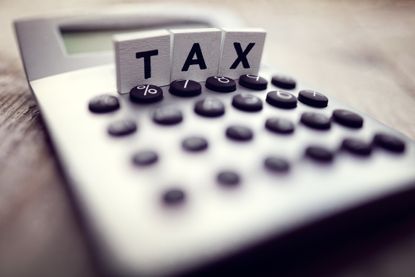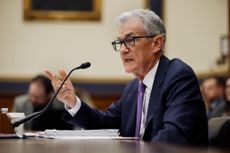How To Avoid Capital Gains Taxes
A few small changes in your investing strategy can result in big tax advantages.


Investing profitably is no easy feat. And for those lucky enough to avoid the pitfalls of Wall Street and who can turn a tidy profit, nothing is more frustrating than seeing those hard-won returns get scaled back due to the "capital gains" taxes levied against them.
With Tax Day quickly approaching, many folks may be wondering how to avoid capital gains taxes altogether. The short answer is that you likely can't. Indeed, the vast majority of retail investors are unable to sidestep the tax man completely.
However, with a few subtle but important changes to your investing strategy, you may be able to reap significant tax deductions. Put another way, you could walk away with bigger profits than anticipated as the money stays in your pocket instead of going into Uncle Sam's coffers.

Sign up for Kiplinger’s Free E-Newsletters
Profit and prosper with the best of expert advice on investing, taxes, retirement, personal finance and more - straight to your e-mail.
Profit and prosper with the best of expert advice - straight to your e-mail.
How much will I pay in capital gains taxes?
If you're wondering what investments qualify for capital gains taxes, the answer is quite simple.
According to current Internal Revenue Service (IRS) policies, "(a)lmost everything you own and use for personal or investment purposes is a capital asset." That includes stocks, bonds and exchange-traded funds (ETFs), but also other non-traditional investment assets including physical real estate properties or even cryptocurrencies like bitcoin.
But while a broad array of investments qualify for capital gains taxes on their returns, the rate at which you are taxed depends on two main categories: The amount of time you have owned the underlying investment and your taxable income bracket.
If you hold the asset for less than one year before you sell, it is a short-term investment for capital gains tax purposes. This means your profits are taxed as ordinary income just like a paycheck. The 2023 short-term capital gains rates for those income tax brackets are as follows according to the IRS.
- 37% for individual single taxpayers with incomes greater than $578,125 ($693,750 for couples filing jointly)
- 35% for incomes over $231,251 ($462,501 for couples filing jointly)
- 32% for incomes over $182,101 ($364,201 for couples filing jointly)
- 24% for incomes over $95,376 ($190,751 for couples filing jointly)
- 22% for incomes over $44,726 ($89,451 for couples filing jointly)
- 12% for incomes over $11,001 ($22,001 for couples filing jointly)
Long-term capital gains rates, however, can be significantly lower – all the way down to zero. According to the IRS:
- A capital gains rate of 0% applies to those single filers with taxable income of up to $44,625, or $89,250 for investors who are married and filing jointly
- A capital gains rate of 15% applies if your taxable income is more than $44,625 but less than $492,301 for single filers, or more than $89,250 but less than or equal to $553,850 for married couples that file jointly
Anyone above that 15% tax threshold is taxed at a 20% long-term capital gains tax rate – a higher measure, but still less than all but the lowest of all the ordinary income tax brackets. You can find the 2024 capital gains tax rates here.
Dividend tax rates mirror these long-term capital tax rates, so long as they are "qualified dividends." This can sometimes be hard to pin down, but if you're invested in a mainstream asset such as blue chip stock Apple (AAPL) and you have been for a few months, you have qualified dividends. But other less straightforward profit-sharing deals such as dividends on employee stock options or payments from a foreign investment may be "unqualified" and considered "ordinary dividends."
Always read the fine print on dividends to get the details on tax treatment because in this case it has less to do with your behavior as an investor and more to do with the underlying status of the investment itself.
Unqualified dividends are taxed as ordinary income, just like short-term capital gains, which can be a much higher rate.
How to reduce or avoid capital gains taxes
There may be a small group of investors who don't have much cash and fit into that lowest tax bracket of 0%. But chances are that if you make less than $40,000 a year, you don't have much spare cash to invest in the stock market.
This means the vast majority of us likely fall into the 15% bucket for capital gains taxes – so long as we hold assets for a year plus one day or longer. That lower long-term capital gains tax rate is a way to incentivize investors to buy and hold.
It's also important to acknowledge that gains are not calculated on a position-by-position basis. Your capital losses can offset your capital gains. Put another way, if you achieve a $1,000 investment profit on one asset, you can offset potential taxes by locking in a $1,000 loss on a different investment to net out your capital gains to zero.
These capital losses can also be carried forward to the next tax year, too, if you have a particularly bad run and wind up locking in more losses than you do gains.
This requires a bit of extra paperwork, including the Capital Loss Carryover Worksheet provided by the IRS, but could be a useful way to ensure next year's profits aren't undercut by taxes.
To be clear, you should never trade investments solely because of capital gains tax risks. Even a 37% haircut on a massive gain is better than a loss locked in just to thwart the IRS. But considering the differences in the tax brackets and the potential for significant capital gains tax savings, all investors should inform themselves about how their behavior can change their investment tax burdens and take that into account along with everything else.
Related content
- What Is Capital Gains Tax?
- Capital Gains Tax Exclusion for Homeowners: What to Know
- States With Low and No Capital Gains Tax
- Seven Tips These Experts Recommend if You Fear Capital Gains Taxes

Jeff Reeves writes about equity markets and exchange-traded funds for Kiplinger. A veteran journalist with extensive capital markets experience, Jeff has written about Wall Street and investing since 2008. His work has appeared in numerous respected finance outlets, including CNBC, the Fox Business Network, the Wall Street Journal digital network, USA Today and CNN Money.
-
 Stock Market Today: Nasdaq Spirals as Netflix Nosedives
Stock Market Today: Nasdaq Spirals as Netflix NosedivesA big earnings boom for credit card giant American Express helped the Dow notch another win.
By Karee Venema Published
-
 Get These 40 Earth Day Deals and Discounts
Get These 40 Earth Day Deals and DiscountsMonday, April 22, is Earth Day. Many of your favorite retailers are celebrating with deals on sustainable products, recycling services, and more
By Kathryn Pomroy Published
-
 Stock Market Today: Nasdaq Spirals as Netflix Nosedives
Stock Market Today: Nasdaq Spirals as Netflix NosedivesA big earnings boom for credit card giant American Express helped the Dow notch another win.
By Karee Venema Published
-
 Stock Market Today: S&P 500, Nasdaq Extend Losing Streaks
Stock Market Today: S&P 500, Nasdaq Extend Losing StreaksThe two indexes have closed lower for five straight sessions.
By Karee Venema Published
-
 Buy eBay and Sell Etsy, Morgan Stanley Says
Buy eBay and Sell Etsy, Morgan Stanley SaysMorgan Stanley is bullish on eBay and bearish on Etsy. Here’s what you need to know.
By Joey Solitro Published
-
 Why Taiwan Semiconductor Stock Is Falling After Earnings
Why Taiwan Semiconductor Stock Is Falling After EarningsTaiwan Semiconductor beat expectations for the first quarter but its stock is notably lower. Here's why.
By Joey Solitro Published
-
 Stock Market Today: Dow Slips After Travelers' Earnings Miss
Stock Market Today: Dow Slips After Travelers' Earnings MissThe property and casualty insurer posted a bottom-line miss as catastrophe losses spiked.
By Karee Venema Published
-
 Why United Airlines Stock Is Flying Higher After Earnings
Why United Airlines Stock Is Flying Higher After EarningsUnited Airlines beat expectations for the first quarter and its stock is by soaring. Here's what you need to know.
By Joey Solitro Published
-
 Super Micro Computer: Why This Hot Stock Could Hit $1,500
Super Micro Computer: Why This Hot Stock Could Hit $1,500Super Micro Computer's long-term AI revenue potential is underappreciated, Loop Capital says. Here's what you need to know.
By Joey Solitro Published
-
 Stock Market Today: Stocks Stabilize After Powell's Rate-Cut Warning
Stock Market Today: Stocks Stabilize After Powell's Rate-Cut WarningThe main indexes temporarily tumbled after Fed Chair Powell said interest rates could stay higher for longer.
By Karee Venema Published